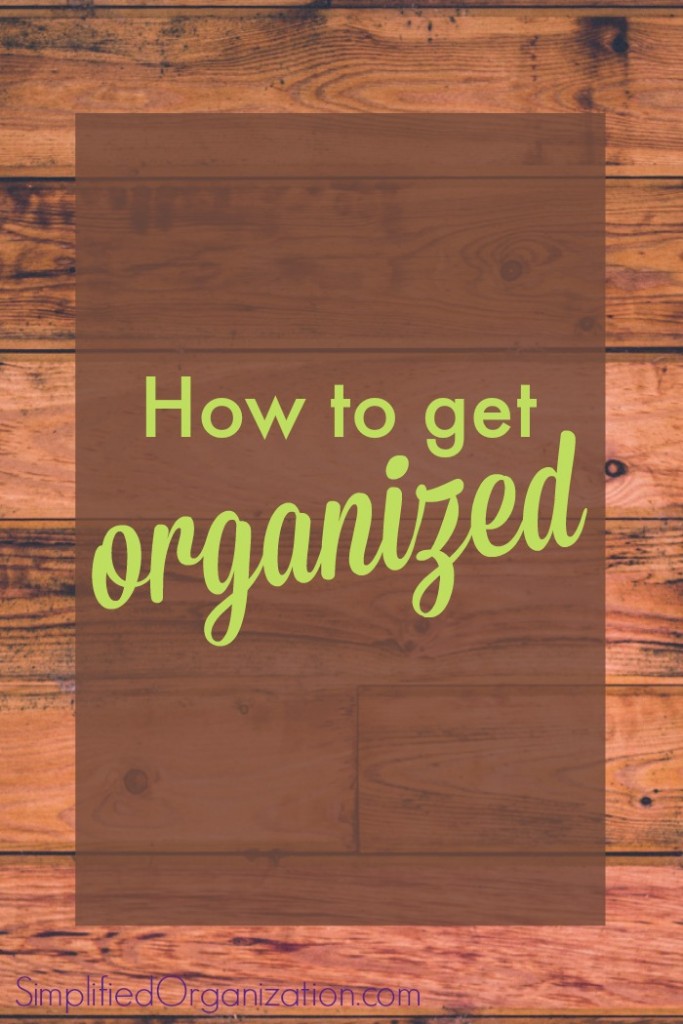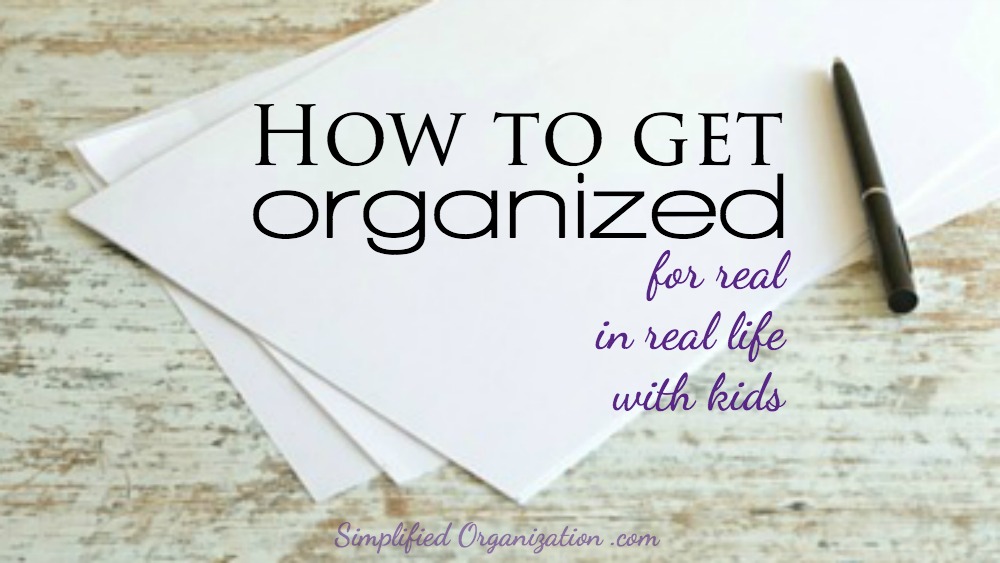How to Get Organized in Real Life
Many of us this summer have the goal to “get everything organized” while we have nice weather, more free time, and a looser schedule. However, unless we begin with our heads and our hearts rather than our closets, our efforts will likely be doomed.
Before we can work toward “organized,” we have to know what this blissful state actually is. We have to make sure we know what our goal is and what we mean by our words before we can achieve it. If we don’t know what organized is, there’s no hope in knowing how to get organized at all.

What is organization?
Organization does not mean
- you have matching containers with chalkboard labels on every shelf
- you have every drawer and closet labeled and orderly
- you are always on top of everything in your life
These are surface-level changes that bring short term relief or pleasure, but don’t address the deeper state we are actually seeking.
Organization means
- you’re prepared
- you know where each item belongs – even if they aren’t in their home, they have a home
- you know what your commitments and responsibilities are
So when you’re organized, this is how you handle life. When we’re not organized, we feel the pressure of the opposites and it makes us want to crawl under the covers and not even begin the day.
We know what it’s like to not be organized.
- Instead of being prepared, we aren’t sure what’s next, we don’t know what’s for dinner, we lose our keys.
- Instead of knowing where each item belongs, we set things down absent-mindedly wherever and end up with random piles all over and we can’t find what we need when we need it.
- Instead of knowing our commitments and responsibilities, we just have a vague, nebulous sense of “ought” and guilt and obligation that we can’t nail down.
So how do we get organized?
When we feel frustrated and defeated and as if we’re banging our heads against a wall, it’s usually at least partly because our reality doesn’t line up with our expectations – how we expect life to go and how we want to be able to handle it.
Now, sure, we have to deal with our reality and work on better habits and regaining some semblance of order. But if we want to combat our frustration levels, we need to work at it from both ends. We have to deal with our expectations as well as our stuff.
This is tricky.
On the one hand, we’re dooming ourselves to panic attacks or mental breakdown if we seriously expect we’re going to live up to the Perfect Ideal of Organized & Clean.
On the other hand, we’re selling ourselves short if we therefore throw up our hands, decide it’s all impossible, and settle for mediocrity.
We need to learn how to get organized without putting all our hope and trust in organization.
Giving up is not the answer.

How to get organized in the midst of real life
We can do what we must do. But we can’t do everything we’d like to do. And we have to be honest about what we must do. And we have to be willing to go through times of trial and error to figure it all out, being open to grow and stretch and learn. Even learn more about ourselves so we can function better.
When we feel frustrated and defeated and as if we’re banging our heads against a wall, it’s usually at least partly because our reality doesn’t line up with our expectations. It matters how you talk to yourself and how you interpret what’s going on in your days.
Rather than fixate on the disorderly piles or the lost keys, take small steps toward each of the three areas of organization. This is how to get truly organized – to start and continue!
- Look at what’s coming this week. What can you do to prepare for it? Make a double-batch of dinner tonight so tomorrow is smoother? Gather the library books tonight and stick them in the car so they’re ready to go in the morning?
This habit of looking ahead and doing small steps to smooth the way for times you know you’ll be pinched for time or stressed is key. It’s not a once-and-done achievement, it’s a way of looking at your life that comes with intentional practice.
- Look at one pile – the one that bothers you the most. Put away the things that have homes but didn’t make it home. What is left? Can you either give these things home or get rid of them? If they have no home, they will always constitute a disorderly pile, no matter where they are.
The project of finding homes for things, much less getting them there, can easily be a year or two-year project. This is not uncommon. Do not be discouraged by how long it takes. Just keep plugging along. You are making good progress.
- How do you know whether or not you should say yes or no to any incoming request for your time? You have to know what your top responsibilities are and whether or not you have extra time and energy after fulfilling those. You have to know whether or not this incoming request is something that fuels you or drains you. You have to know whether or not this or that activity furthers your goals in your areas of responsibilities or if it will distract you from those goals.
Only careful thought and maybe discussion with your husband or a close friend can help you iron these things out. But it is worth the mental effort required, because when you have that groundwork laid, you have a filter which makes decisions easier and you banish vague guilt about saying either yes or no.
One way to help you see how to get organized is to do a brain dump to get all the thoughts about your responsibilities and commitments and obligations out of a jumble in your head and onto paper, where you can sort through it all with more perspective.
I have a short guide that will walk you through a thorough brain dump so you can learn how to get organized.
Dump all those swirling thoughts out of your head.
Yes, simply writing it all down will help to
- Reduce stress by getting your thoughts onto paper
- Reduce frustration by assigning homes to stuff, tangible & intangible
- Reduce anxiety by knowing what you have on your plate



